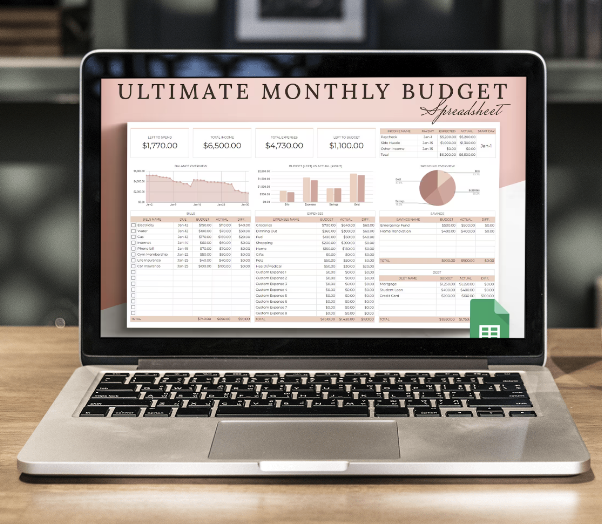You don’t have to be rich to need estate planning. Your estate includes everything you own, and it can be any size, which is why it can be worth taking time to plan for what happens to it.
What is estate planning?
Estate planning is the process of designating who will receive your assets and handle your responsibilities after your death or incapacitation. One goal is to ensure beneficiaries receive assets in a way that minimizes estate tax, gift tax, income tax and other taxes.
Estate planning can help establish a platform you can fine-tune as your personal and financial situations change. The key question to ask yourself is: How do you want your assets distributed if you die or are incapacitated?
Seven steps to basic estate planning
1. Inventory your stuff
You may think you don’t have enough to justify estate planning. But once you start looking around, you might be surprised by all the tangible and intangible assets you have.
The tangible assets in an estate may include:
- Homes, land or other real estate
- Vehicles including cars, motorcycles or boats
- Collectibles such as coins, art, antiques or trading cards
- Other personal possessions
The intangible assets in an estate may include:
- Checking and savings accounts and certificates of deposit
- Stocks, bonds and mutual funds
- Life insurance policies
- Retirement plans such as workplace 401(k) plans and individual retirement accounts
- Health savings accounts
- Ownership in a business
Once you inventory your tangible and intangible assets, you need to estimate their value. For some assets, outside valuations like these can help:
- Recent appraisals of your home (use our home value calculator to keep track of how much it’s worth)
- Statements from your financial accounts
When you don’t have an outside valuation, value the items based on how you expect your heirs will value them. This can help ensure your possessions are distributed equitably among the people you love.
2. Account for your family’s needs
Once you have a sense of what’s in your estate, think about how to protect the assets and your family after you’re gone.
- Ensure you have enough life insurance — If your next question is “How much life insurance do i need?” It depends on factors such as if you’re married and whether your current lifestyle requires dual incomes. Life insurance may be even more important if you have a child with special needs or college tuition bills.
- Name a guardian for your children — and a backup guardian, just in case — when you write your will. This can help sidestep costly family court fights that could drain your estate’s assets.
- Document your wishes for your children’s care — Don’t presume that certain family members will be there or that they share your child-rearing ideas and goals. Don’t assume a judge will abide by your wishes if the issue goes to court.

3. Establish your directives
A complete estate plan includes important legal directives.
- A trust might be appropriate. With a revocable living trust, you can designate portions of your estate to go toward certain things while you’re alive. If you become ill or incapacitated, your selected trustee can take over. Upon your death, the trust assets transfer to your designated beneficiaries, bypassing probate, which is the court process that may otherwise distribute your property. There’s also the option to set up an irrevocable trust, which can’t be changed or revoked by the creator.
- A medical care directive, also known as a living will, spells out your wishes for medical care if you become unable to make those decisions yourself. You can also give a trusted person medical power of attorney for your health care, giving that person the authority to make decisions if you can’t. These two documents are sometimes combined into one, known as an advance health care directive.
- A durable financial power of attorney allows someone else to manage your financial affairs if you’re medically unable to do so. Your designated agent, as directed in the document, can act on your behalf in legal and financial situations when you can’t. This includes paying your bills and taxes, as well as accessing and managing your assets.
- A limited power of attorney can be useful if the idea of turning over everything to someone else concerns you. This legal document does just what its name says: It imposes limits on the powers of your named representative. For example, you could grant the person the power to sign the documents on your behalf at the closing of a home sale or to sell a specific stock.
- Be careful about who you give power of attorney. They may literally have your financial well-being — and even your life — in their hands. You might want to assign the medical and financial representation to different people, as well as a backup for each in case your primary choice is unavailable when needed.
» Dig into the differences: Revocable vs. irrevocable trust
4. Review your beneficiaries
Your will and other documents may spell out your wishes, they may not be all-inclusive.
- Check your retirement and insurance accounts. Retirement plans and insurance products usually have beneficiary designations that you need to keep track of and update as needed. Those beneficiary designations can outweigh what’s in a will.
- Make sure the right people get your stuff. People sometimes forget the beneficiaries they named on policies or accounts established many years ago. If, for example, your ex-spouse is still a beneficiary on your life insurance policy, your current spouse will get the bad news — and none of the policy’s payout — after you’re gone.
- Don’t leave any beneficiary sections blank. In that case, when an account goes through probate, it may be distributed based on the state’s rules for who gets the property.
- Name contingent beneficiaries. These backup beneficiaries are critical if your primary beneficiary dies before you do and you forget to update the primary beneficiary designation.
5. Note your state’s estate tax laws
Estate planning is often a way to minimize estate and inheritance taxes. But most people won’t pay those taxes.
- At the federal level, only very large estates are subject to estate taxes. For 2020, up to $11.58 million of an estate is exempt from federal taxation. In 2021, up to $11.7 million is exempt. What if you have a larger estate that surpasses the federal tax exemption limits? You may want to consider a grantor retained annuity trust, or GRAT, a type of irrevocable trust that can help reduce the amount of taxes your heirs pay.
- Some states have estate taxes. They may levy estate tax on estates valued below the federal government’s exemption amount. (See which states have an estate tax here.)
- Some states have inheritance taxes. This means that the people who inherit your money may need to taxes on it. (Learn more about inheritance tax here.)

6. Weigh the value of professional help
Whether you should hire an attorney or estate tax professional to help create your estate plan generally depends on your situation.
- If your estate is small and your wishes are simple, an online or packaged will-writing program may be sufficient for your needs. These programs typically account for IRS and state-specific requirements and walk you through writing a will using an interview process about your life, finances and bequests. You can even update your homemade will as necessary.
- If you have doubts about the process, it might be worthwhile to consult an estate attorney and possibly a tax advisor. They can help you determine if you’re on the proper estate planning path, especially if you live in a state with its own estate or inheritance taxes.
- For large and complex estate — think special child care concerns, business issues or nonfamilial heirs — an estate attorney and/or tax professional can help maneuver the sometimes complicated implications.
7. Plan to reassess
Life changes. So should your estate plan.
- Revisit your estate plan when your circumstances change, for better or for worse. This may include a marriage or divorce, birth of a child, loss of a loved one, getting a new job or being terminated.
- Revisit your estate plan periodically even if your circumstances don’t change. Although your situation may be the same, laws may have changed.
- It will take some effort to revise your plan, but take heart. The need to revise means you’ve already avoided the biggest estate planning mistake: never drafting a plan at all.
Authored by Kay Bell on NerdWallet
This article is meant to provide background information and should not be considered legal guidance.
Discover more from Black Hills Financial Planning
Subscribe to get the latest posts sent to your email.







